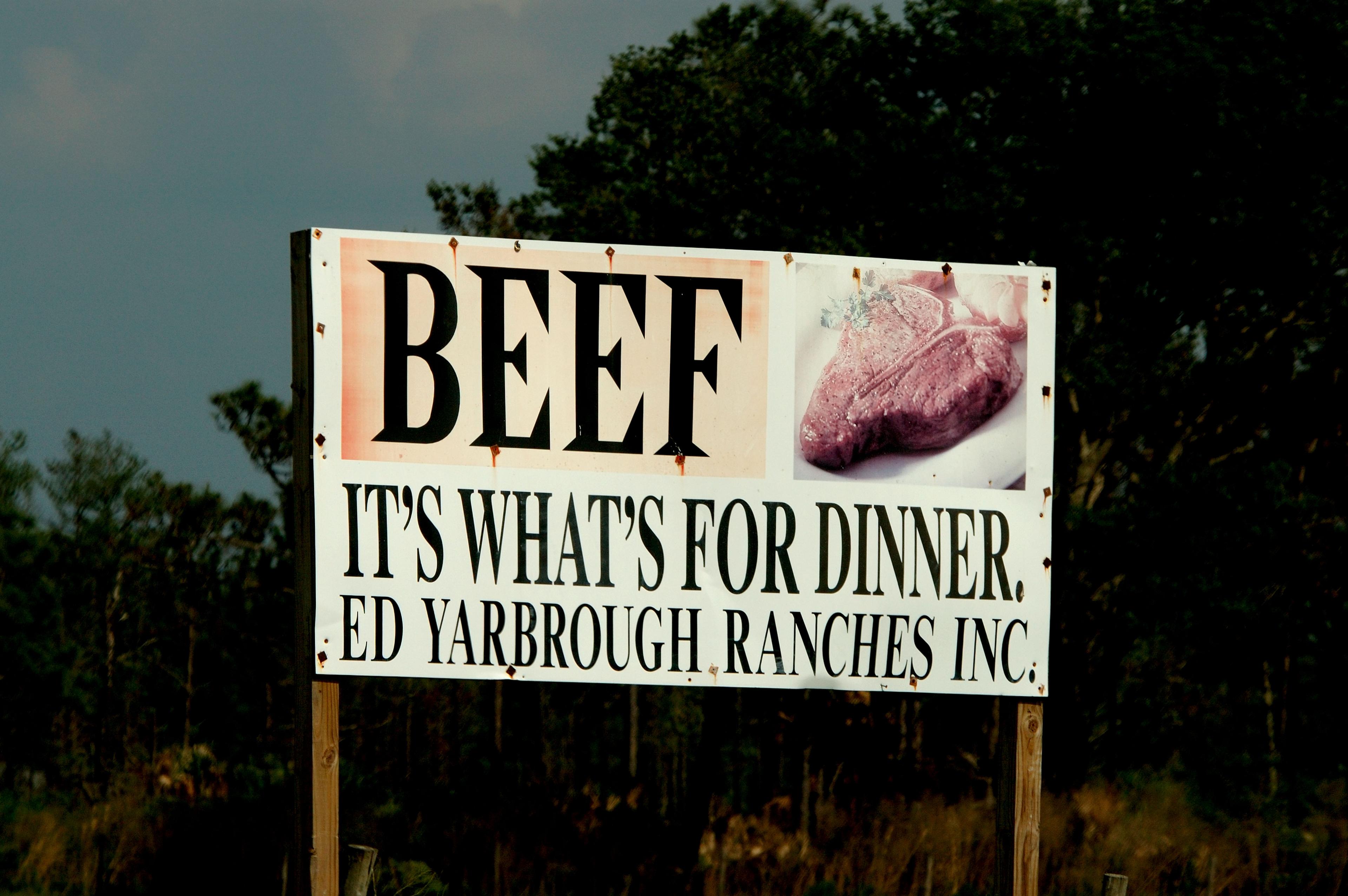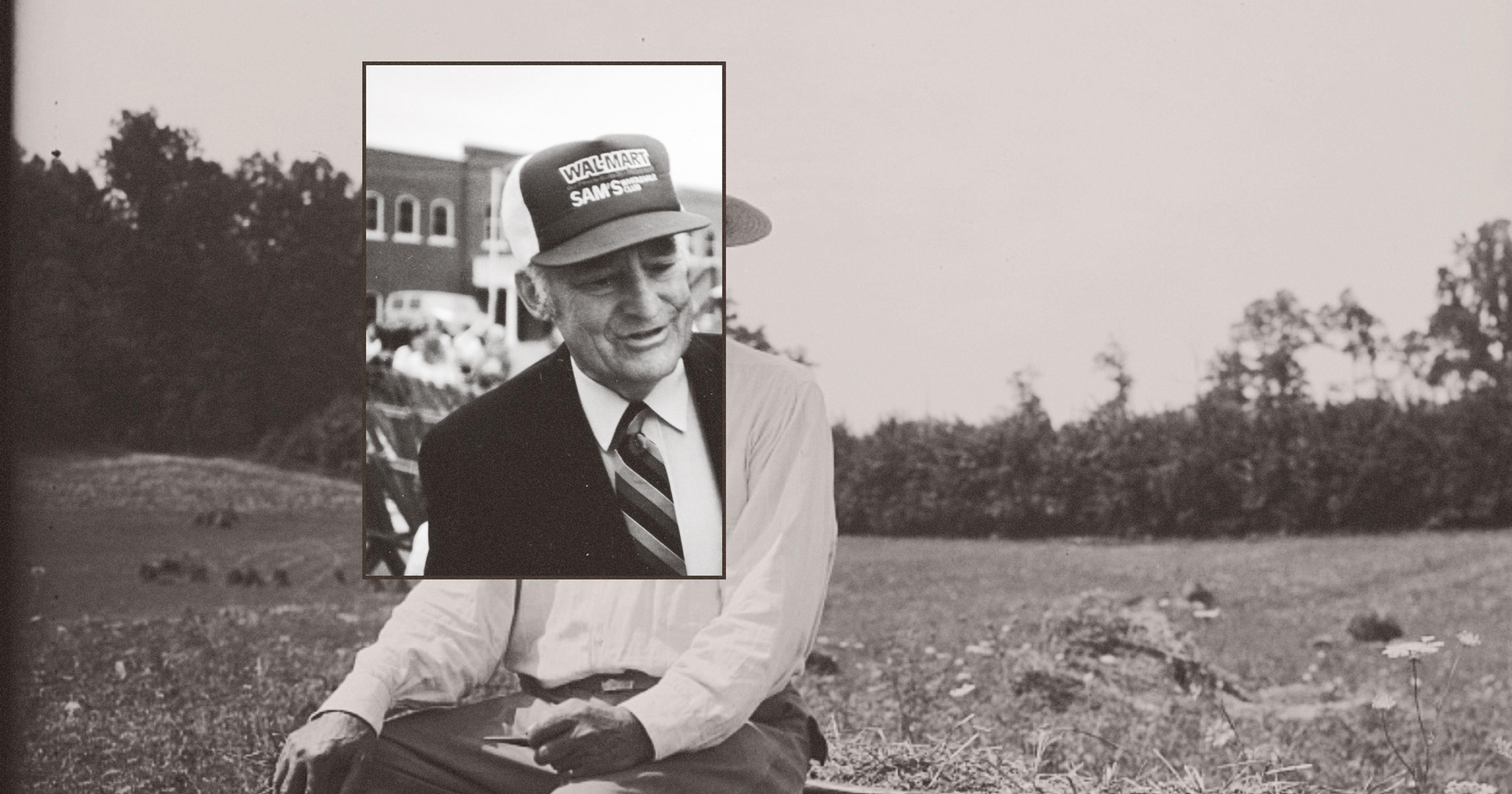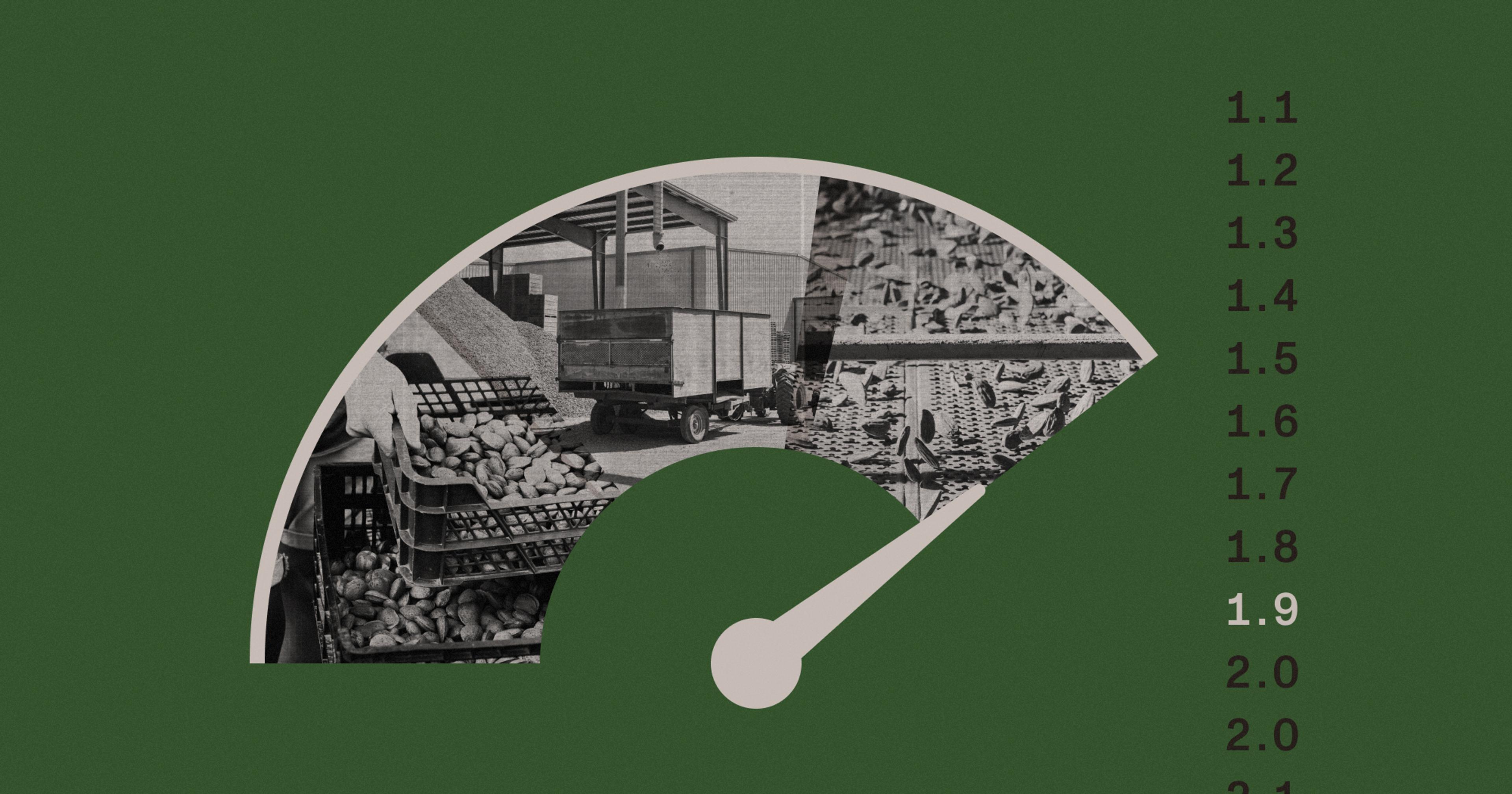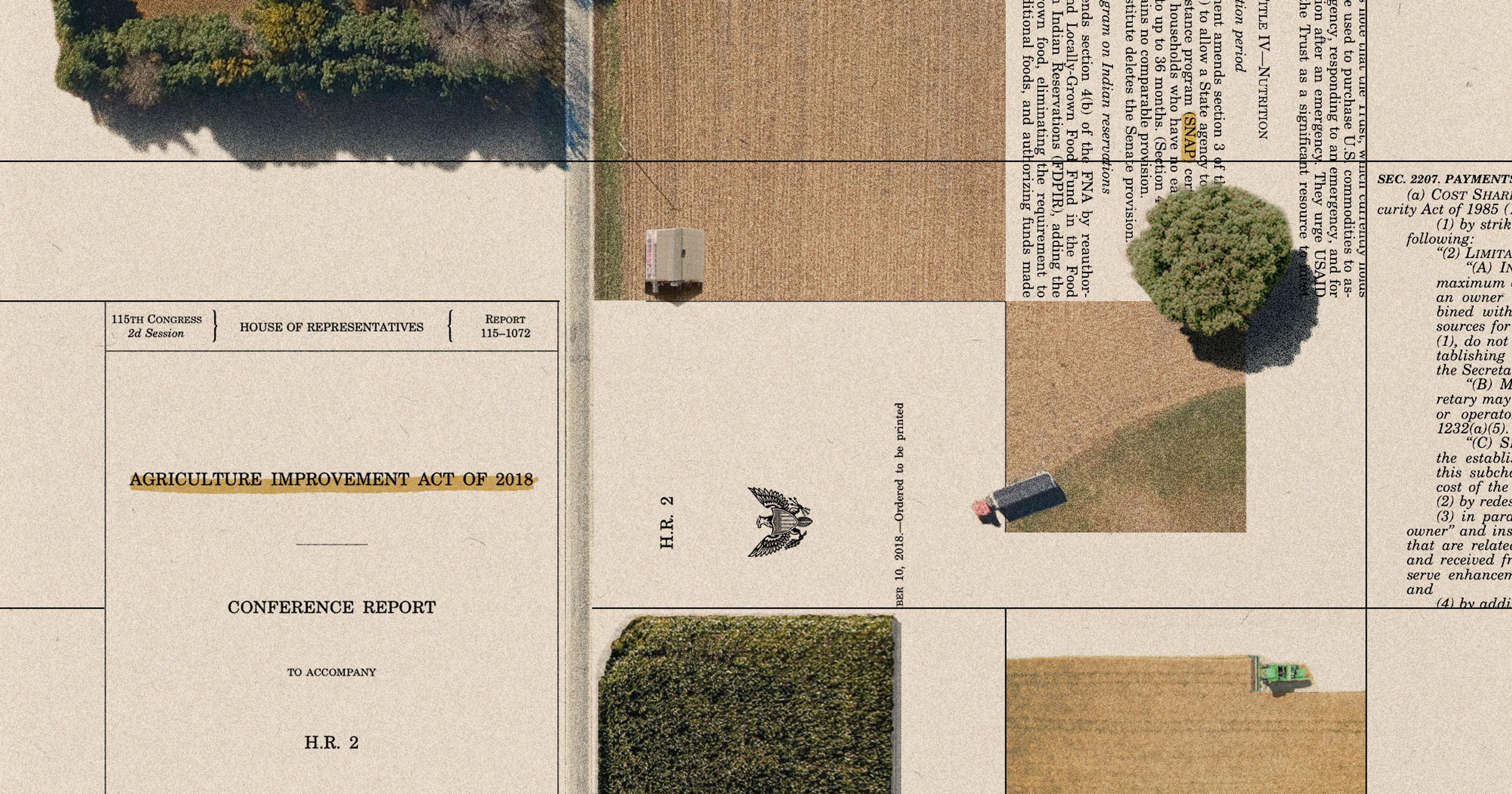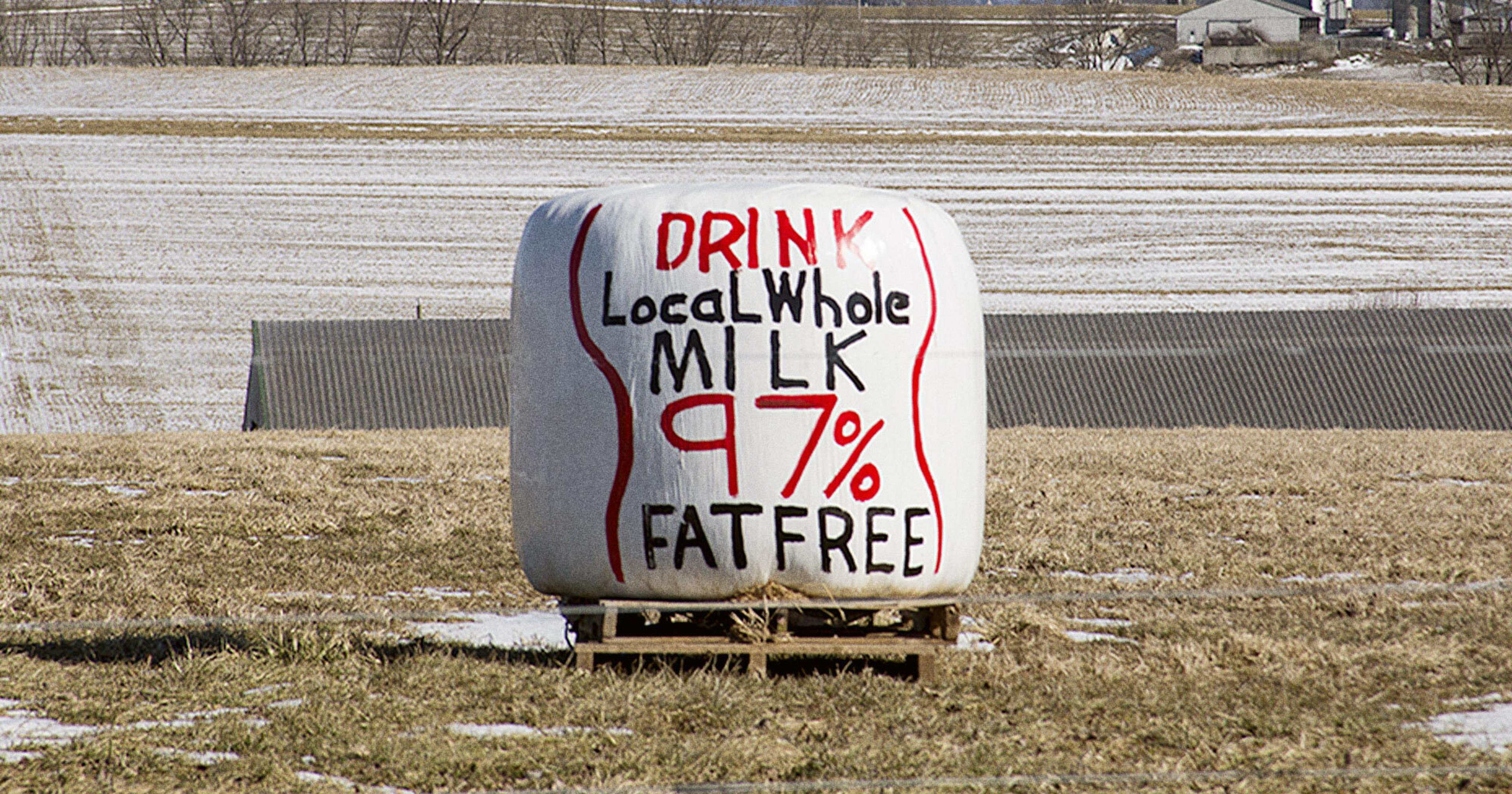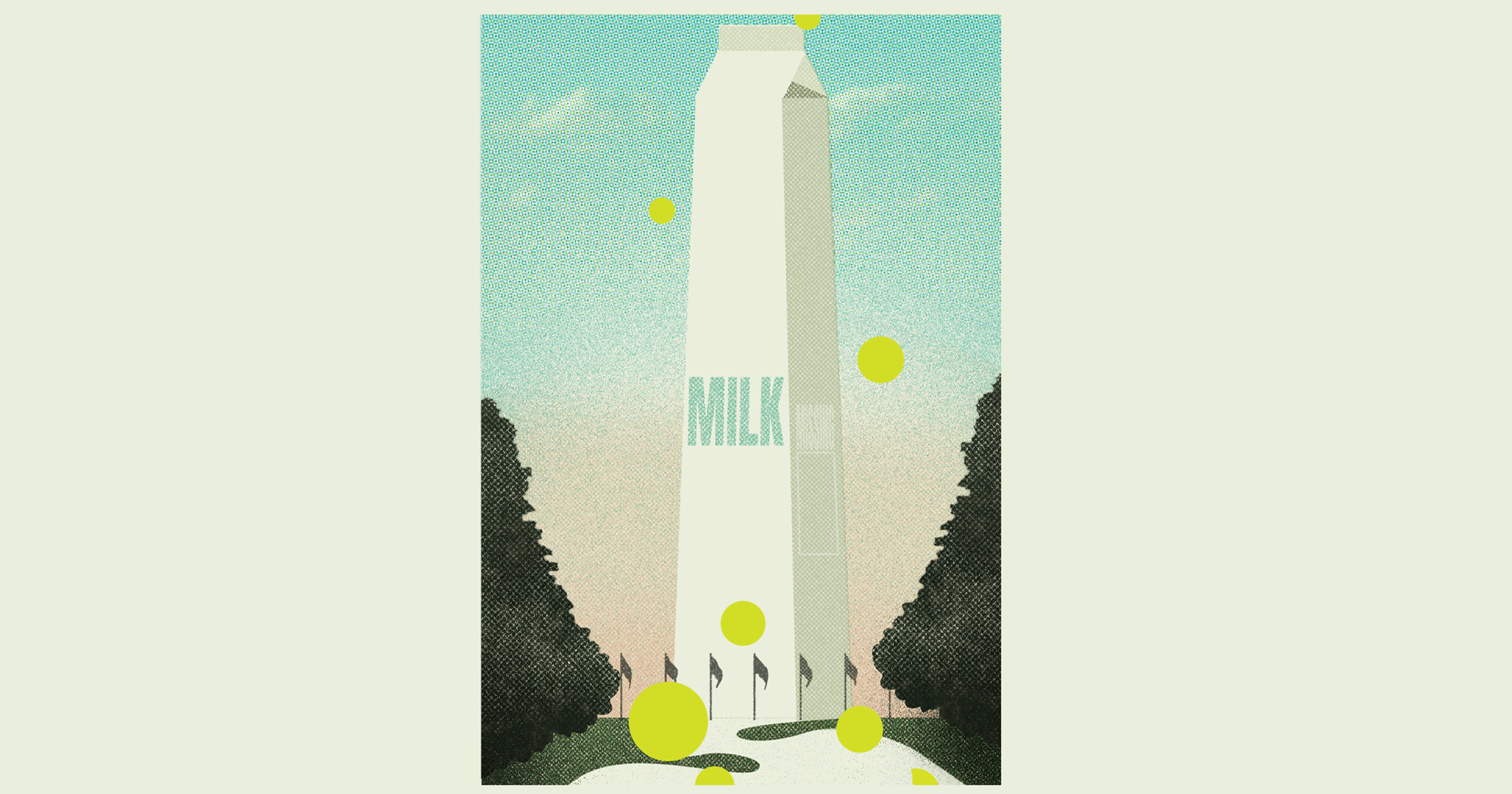A strange, bipartisan alliance is pushing to make 22 USDA commodity-promoting programs — e.g., beef, dairy, and corn — more accountable, and less harmful to smaller producers.
“I don’t know how anybody can argue with accountability,” said Wes Shoemyer. “I don’t know how they can argue with transparency.”
The Missouri farmer, who plants some 3,000 acres of corn and soybeans and the occasional few acres of wheat, was talking about the Opportunity for Fairness in Farming (OFF) Act. Introduced into the Senate in February 2023 and the House a month later, bipartisan coalitions of lawmakers hope to get the act written into the 2023 Farm Bill.
It’s part of a decades-long attempt to reform agricultural checkoffs, which force farmers of certain commodities to contribute a portion of their earnings to pay for industry research and advertising. The U.S. Department of Agriculture-run programs (via USDA’s Agricultural Marketing Service, or AMS) are meant to grow consumer desire for products like beef and pork, milk and cotton, watermelons and popcorn, and yes, corn and soybeans (the latter two often in the form of biofuels).
When checkoffs first originated in the 1930s, farmer participation was voluntary — a way to “pool their resources and boost the overall sales of their product,” according to anti-monopoly group Farm Action Fund. They began to morph into their current, compulsory form in the 1985 Farm Bill, and are now at the center of a contentious battle between the farmers who are obliged to pay for them and the trade groups some say are using checkoff money for their own gain.
Currently numbering 22, the programs are supposed to give agricultural producers “the power to maximize resources [by] promoting a commodity as a whole instead of by individual businesses,” according to a checkoff webpage. “Everyone in the industry benefits through increased sales, consumer awareness, and higher overall demand.” Ever heard the oddly generic slogans, “Beef. It’s what’s for dinner,” or “Got milk?” or “The incredible, edible egg?” They were paid for with checkoff dollars. (Whether they’ve actually made American shoppers yearn for beef or milk or eggs is a question for another story.)
Many farmers, ranchers, and organizations both in and out of agriculture maintain that checkoffs are rife with abuses. They say the programs exact what amounts to a steep mandatory tax (and potentially steeper penalties for non-compliance) — Shoemyer pays a penny a bushel on all the corn he sells, adding up to about $2,000 a year — whose expenditure farmers have no say or sway over.
Some still remember when checkoffs were not mandated. “That’s why they’re called checkoffs, because farmers would check a box on their sales slip if they wanted to contribute,” explained Angela Huffman, vice president of Farm Action Fund, which is leading calls for reform. “That provides a lot more incentive for the checkoffs to be more accountable to the people paying into them,” Huffman said. Shoemyer and other farmers would like to see all checkoffs reestablished as voluntary.
It should be mentioned, if farmers in some states don’t approve of what their checkoff dollars are paying for, they can apply for refunds. For instance, Shoemyer doesn’t like how his corn checkoff dollars are being spent — he gets “galled” when the checkoff works with partners that fight counties trying enact clean water protections — he can apply for a refund to the state of Missouri, which manages his particular checkoff. He’s had some success in getting money returned.
“We are actually funding our own demise.”
Checkoff boards stand accused of various violations: for lobbying; failing to make their meetings public; neglecting to submit financial reports to farmers or to Congress; embezzlement; instances of assault; and allowing their coffers to fund things like overseas vacations. The OFF Act would prohibit checkoffs from contracting with lobby groups and engaging in conflicts of interest or anti-competitive and “deceptive” acts.
For their part, some trade groups that currently contract with checkoff boards — these include the National Cattlemen’s Beef Association (NCBA), the U.S. Dairy Export Council, and the National Pork Producers Council — dispute claims that rules governing checkoff programs have been abused. NCBA CEO Colin Woodall went a step further on the Agribusiness Radio Network, saying the OFF Act is a ploy by animal rights activists to push an anti-meat agenda. (Cory Booker, D-NJ, is a Senate sponsor and a vegan.) The OFF Act is “actually about animal activists attacking us as beef producers,” Woodall said.
An independent assessment of checkoffs, released in 2017 by the Government Accountability Office, found that USDA’s oversight of the programs had improved in the five years since an earlier report was released. But it acknowledged that USDA’s ability to “prevent misuse of funds is impaired” and that it may miss “an opportunity to ensure that stakeholders have access to information on program operations and effectiveness.”
Chief among producer complaints is that checkoffs bolster consolidation in meatpacking and put smaller producers out of business; by paying into them “we are actually funding our own demise,” said Judy McCullough, who runs a 14,000-acre calf-cow operation in Wyoming. She pays a dollar into the beef checkoff program every time she sells a calf to a backgrounder, who raises cows in the months between weaning and finishing. The backgrounder then sells that calf to a finisher, who fattens it to sell to a packer like JBS or Cargill or National Beef; both the backgrounder and the finisher are also each obliged to pay a dollar into the beef checkoff — but none of them reap the rewards of beef advertising or research.
Bill Bullard is CEO of cattle industry nonprofit and lobbying group R-Calf USA, which has sued USDA twice in the last 20 years over alleged checkoff abuses. “You have an animal upon which $3 to $5 is collected during its lifetime,” from every producer along the supply chain, he said. This generates about $80 million per year, split between state beef councils and the federal checkoff, the latter of which he said contracts mainly with NCBA to spend its portion of funds — although Bullard said in both instances, producers are granted no say in how their checkoff dollars are used.
Checkoff dollars only promote commodities generally; for instance, they make no distinction between cattle raised regeneratively or on 100% pasture. Said Huffman, “Environmental groups have really been complaining that the beef checkoff is promoting how sustainable and good for the environment beef is but they’re representing the interests of CAFOs, not ranchers who are doing grass-fed beef and actually improving the soil.” Nutritionist Marion Nestle in May called attention to potential beef checkoff greenwashing on her Food Politics blog. Responding to a New York Times ad in which “land without cattle” was equated with “land without butterflies and deer,” Nestle wrote that beef checkoff participants “generally raise cattle in CAFOs … the antithesis of grazing or regenerating land.”
“In a perfect world, there’d be no checkoff. We can advertise our own product … We don’t need them to do that for us.”
Meatpackers near the tail end of the supply chain don’t have to pay any money into the checkoff program (unless they’re importing meat, according to Huffman) — even though checkoff reformers say they, and their trade org partners, stand to benefit the most from it. They can set the price they pay for a cow they buy from a finisher, which has negative ripple effects all the way back down the line to McCullough and other producers. And they can set the price of beef they sell into the marketplace — which is why they were investigated by the Department of Justice for price-fixing; JBS settled for $52.5 million in February of 2022, and for another $25 million in April of 2022.
Even a checkoff-funded research project that “invented” the flatiron steak in 2002 “benefited the packer, because that was a leftover meat cut and I don’t sell beef, see, I sell calves,” said McCullough. “In a perfect world, there’d be no checkoff. We can advertise our own product … We don’t need them to do that for us.”
Neither last nor least, since proponents of reform cite numerous complaints against checkoff programs (go further in-depth here and here), Bullard, Huffman, and others say USDA itself is to blame for checkoff failures, and is little inclined to fix them. “You have a government-mandated program and the government wants to continue operating the program because it means more employees and more salaries,” said Bullard. (AMS did not immediately respond to a request for comment.)
Relatedly, points out Huffman, checkoff board members are appointed by USDA’s secretary of agriculture; the once-and-current secretary, Tom Vilsack, was president of powerful lobby group U.S. Dairy Export Council in between secretarial stints. “There’s a revolving door between USDA and [lobby groups] and there’s just not a good incentive for USDA to have accountability with these folks when they’re basically in bed with these industries,” Huffman said.
Nevertheless, calls for reform are amping up and making for some odd bedfellows: among them, various independent cattlemen’s groups; the Union of Concerned Scientists, a nonpartisan science advocacy nonprofit; right-wing think tank the Heritage Foundation, which has ties to the Koch brothers; and the National Taxpayers Union, a fiscally conservative group that lobbies for constitutional limits on taxes and government spending.
But will their collaborative effort finally engender change? Corn and soy farmer Shoemyer isn’t so sure. “It’s a lot more fun for those folks involved with [the checkoff] to go hanging around with folks in suits and ties and Learjets than it is to come out and sweat your tail off trying to figure out how to make a [crop] field make more for you,” he said.

